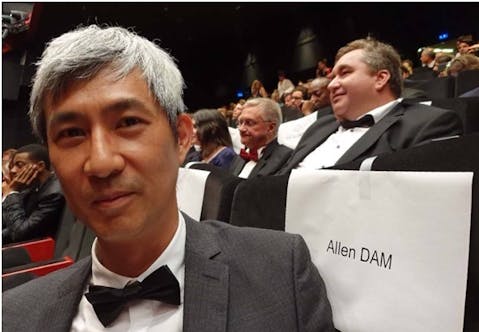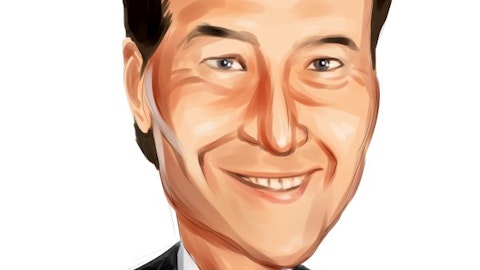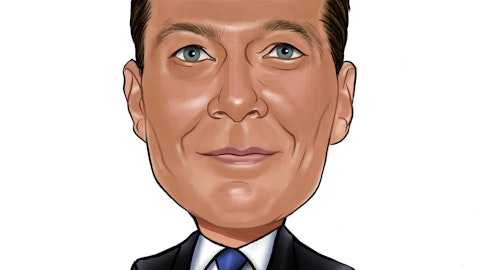As blockchain and cryptocurrencies are beginning to prove their utility across a wide variety of sectors, the industry is attracting luminaries keen to demonstrate the disruptive power of the technology in their own space. Allen V. Dam is one such example. A former Hollywood producer, Mr. Dam has worked on movies including Rambo: Last Blood, Furious 6, and The Fast and The Furious: Tokyo Drift. He’s also produced movies in his native country of China for the China Film Group Corporate, the largest and most influential state-owned film enterprise in the nation.
Now, he’s joined the NFT project Spores Network as its Chief Content Officer. In this role, he’ll be in charge of all entertainment content acquisition for the NFT project, making connections to major IP holders and franchises. It’s a significant opportunity to get Spores’ NFT technology in front of some of the industry’s big players.

Allen V. Dam
We recently had the opportunity to catch up with Mr. Dam. In this interview, we find out more about his transition from the silver screen to the digital wallet and gain some insights into the potential for NFTs in the movie sector.
When did you first hear about cryptocurrencies?
I remember I was at a release party for a movie in Hong Kong in 2010. I was doing the usual meet and greet with guests and eventually started talking to an interesting gentleman who was eager to discuss Bitcoin. I had heard some rumors about Bitcoin but had dismissed it as nothing more than a fad. I didn’t understand what bits of code could have to do with real-world money.
After he had explained that there were already Bitcoin exchanges, and people like him were trading in Bitcoin to make real money, I realized this was more than just a passing novelty. This was potentially the future of currency as we know it, and it married well with the fast-paced transactions of our new digital world.
Now, I’m having similar thoughts regarding NFTs and feel the transition of our nostalgia into the digital realm will lead to new avenues of value for those willing to be part of the earliest phase of adoption.
What’s brought you from the bright lights of the movie studios to the blockchain and cryptocurrency space? How did you decide to make the leap?
I made the transition to blockchain space because I see a great deal of potential in replicating the enduring success of physical merchandise, such as limited-edition DVDs and other collectibles, into a digital form. NFTs provide fans the opportunity to own and trade a truly unique piece of art from their favorite content.
What do you see as the most significant opportunities for using NFTs in the movie industry? And in other segments?
All the merchandising currently available within the movie industry can, in some form or another, be translated into NFTs without the cumbersome prerequisites of storage or slow transaction times. With NFTs, the movie industry will be able to serve its fans quickly and conveniently. Speed and convenience are typically high priorities for consumers in this new digital age, and so they’re a matter of competitive edge.
In addition, there will be many other ways to monetize these NFTs, such as contests and games, that we feel will create an even greater sense of emotional involvement with fans.
What do you think the crypto and blockchain space could learn from the movie industry?
I believe the movie industry can learn a great deal from the crypto industry. With the advent of encryption and digital signatures, the movie industry can learn to embrace the digital age in more ways than just streaming or digital downloads. It can actually bring emotional value to these digital assets by establishing authenticity and scarcity through NFTs.
Living in Hollywood, how much do you think crypto and NFTs have penetrated the local psyche there? Is it something of which movie industry execs are conscious?
If there’s one thing the movie industry has learned from the past about technology is that you have to embrace it and find ways to monetize it. I remember the outrage over torrents when they first emerged. People could download movies and shows without paying for them. The industry fought tooth and nail to stop these torrents. They had people fined and arrested. They pushed through legislation to protect their IP.
However, in the end, it did no good. We couldn’t beat it. So, we had to embrace it. From streaming to digital downloads, we have come a long way from VHS tapes and DVDs. Now there is a great deal of interest amongst my colleagues in the movie industry about NFTs and “found income.” I believe we are on the cusp of a new cycle of merchandising in the industry.
What do you think are the biggest challenges and opportunities facing the movie industry as a whole right now?
Currently, one of the biggest challenges facing the movie industry is reach. With the damage Covid has done to the industry, we have been forced to find new ways to reach our audience. The traditional cycle of theater releases, then DVDs, and then streaming has been disrupted.
However, these challenges have also provided new opportunities to the industry. We’re seeing big-name releases going straight to streaming services, and now with NFTs, we’re also able to reach this audience during the mayhem of the pandemic.
Fans don’t need to attend conventions or stores. Memorabilia can be available quickly and conveniently through NFTs.
With your expertise from the industry, do you have any thoughts on other blockchain use cases in the film industry?
I heard some companies are creating an NFT platform for independent producers to help fund their projects. In fact, this is also something Spores can support by helping these filmmakers sell their digital collectibles to finance projects. They could sell artwork, sections of the film’s score, almost anything you can think of. This is an excellent way for starting filmmakers to get a source for capital and, at the same time, deepen their engagement with their audience.
What is the biggest personal change for you as you move into your new role?
The biggest personal change has been the decentralization of the workflow. This is not a normal nine-to-five job. It’s a job that is flexible as well as interesting. It has given me the opportunity to work on a flexible schedule and make decisions in a more flexible manner.




